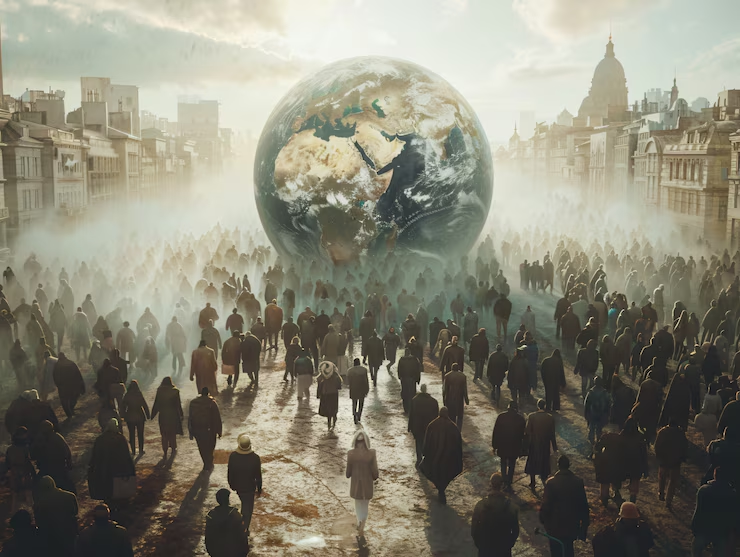The world in 2025 is undergoing significant political changes. Global Political Shifts 2025 are reshaping leadership, international relations, and governance. From emerging powerhouses to political revolutions, nations are evolving rapidly, influencing global economies, security, and cultures.
At News Box Daily, we keep you updated on these critical political shifts and their potential to alter the global landscape. Understanding these transformations will help us predict how nations will interact in the coming years.
1. The Rise of New Political Powers in Asia
Asia is at the forefront of the changing global order. Countries like China, India, and Japan are gaining more influence on the world stage. China’s Belt and Road Initiative is expanding its global reach, while India is strengthening diplomatic ties, and Japan is positioning itself as a technological leader. Together, these countries are creating new alliances and shaping global politics.
2. Political Reforms in the Middle East
The Middle East is undergoing profound changes, with nations like Saudi Arabia and the UAE embracing modernization. These reforms are making the region more politically stable, while fostering stronger economic ties. Saudi Arabia’s Vision 2030 aims to reduce the country’s reliance on oil, while the UAE continues to attract international investment through progressive policies. This shift is also encouraging peace talks in the region, improving relations with neighboring countries.
3. European Political Shifts and the Impact of Brexit
Europe is witnessing political shifts, particularly post-Brexit. The United Kingdom’s decision to leave the European Union has led to political fragmentation, challenging the unity of European countries. Meanwhile, populist movements in Italy, Hungary, and other nations are affecting the region’s governance. Germany is playing a key role in maintaining EU stability, despite the rise of nationalist sentiments in several countries.
4. The Influence of Climate Change on Political Decisions
Climate change is increasingly influencing global politics. Governments are enacting policies to mitigate environmental risks and adapt to climate-related challenges. Nations are investing in green energy and sustainable practices, while international climate agreements are pushing countries to meet carbon reduction targets. These shifts are also leading to changes in immigration policies, as some nations are addressing the issue of climate refugees.
5. The Evolution of Democracy and Authoritarianism
Around the world, political systems are evolving, with some countries moving toward authoritarianism, while others continue to embrace democracy. Countries like Russia and China are strengthening their grip on power, limiting opposition and curbing freedoms. However, many democracies are pushing back, with youth movements and political activism driving change. The balance between democracy and authoritarianism is shifting, creating new challenges for global governance.
6. The Role of Technology in Political Influence
Technology is reshaping the political landscape. Social media platforms are becoming essential tools for political campaigns and mobilizing voters. AI and big data are being used to analyze public opinion, while cybersecurity has become a top priority for governments to protect against cyber threats. Technology is also being leveraged to enhance governance, improve national security, and influence global diplomatic strategies.
7. Shifts in International Alliances and Global Security
Global security is being redefined by changing political alliances. Tensions between the US and China continue to rise, influencing global trade and military strategies. NATO is adapting to new security threats, including cyberattacks and regional conflicts. Meanwhile, countries like Brazil and South Africa are emerging as influential players in global politics, forming new alliances and contributing to peacekeeping efforts.
FAQs
Q1: What are the primary causes of political shifts in 2025?
A: Political shifts are caused by changes in global power dynamics, economic crises, technological advancements, and climate change.
Q2: How is climate change affecting political decisions?
A: Governments are enacting laws to reduce carbon emissions, invest in green energy, and address the social impacts of climate change, such as climate migration.
Q3: Why is authoritarianism increasing in some countries?
A: Authoritarianism is rising as some leaders consolidate power, restrict freedoms, and suppress opposition to maintain control, often citing national security concerns.
Q4: How does technology influence politics in 2025?
A: Technology shapes political campaigns, public opinion, and security policies, with social media, big data, and cybersecurity playing a crucial role.
Q5: What impact has Brexit had on European politics?
A: Brexit has caused fragmentation in the European Union, challenging economic cooperation, security arrangements, and the unity of member states.
Q6: What are the global security concerns in 2025?
A: Global security concerns include cyberattacks, geopolitical tensions, regional conflicts, and the rising influence of non-traditional powers like China and Russia.
Conclusion
The Global Political Shifts 2025 are shaping the future of international relations, economics, and security. From Asia’s growing influence to the rise of new political systems, the world is changing rapidly. At News Box Daily, we will continue to monitor these developments and provide you with insights into how they will affect the global political landscape in the years ahead.



